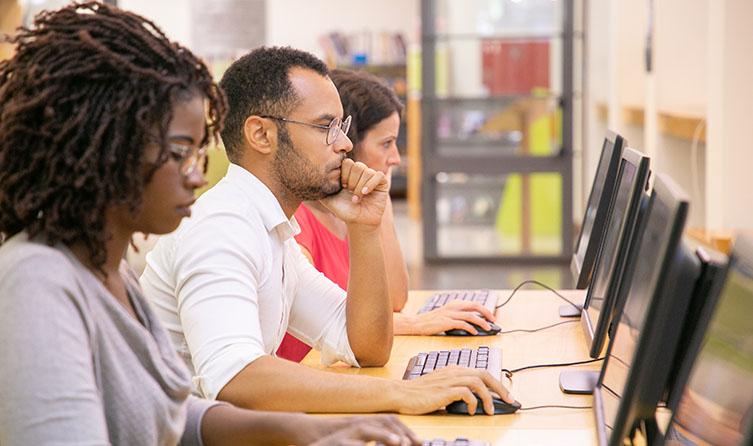Spotlight on Equity in High-Stakes Professional Testing and Assessment

Future economic growth in the U.S. depends upon our ability to build, sustain, and empower a diverse workforce that is appropriately skilled to meet employers’ needs and adaptable to changing circumstances. Meeting this need often requires industry-driven job training, testing, and assessment to help employers fairly and equitably determine a job seeker’s ability to perform essential job functions.
Industry leaders across sectors have prioritized strategies that testing programs use to develop items—or test questions—that all test takers can understand. By considering diversity, equity, and inclusion at every step of test development, scoring, and administration, we can mitigate real and perceived barriers to fairness that may undermine the positive aspects and goals of the assessment industry. AIR has joined these leaders to help pave the way forward for professional testing and assessment practices that aim to increase testing fairness and efficiency, advance equity, and minimize bias.
Our Work
For example, we help our clients in the following ways:
- Equitable item development and test taking. A foundational principle in test development is that tests need to maximize fairness and accessibility to ensure that test takers have an equitable chance to demonstrate their knowledge, skills, and/or abilities. We work with clients to examine best practices that test developers can use to mitigate bias, demonstrate a shared commitment to equity, and enhance the test taking experience.
- Psychometrics expertise. AIR employs a team of knowledgeable and experienced psychometricians who actively study advanced techniques and measurement theories associated with educational testing, measurement, and assessment. Our experts assess and improve the quality of testing and assessments to ensure they are grounded in measurement theories, such as Item Response Theory, measurement invariance studies, reliability analyses, various factor analyses, and use of process data to improve accuracy and efficiency of measurement . Our focus on quality measurement and psychometrics yields data and research results that are trusted by clients and stakeholders as reliable, valid, and actionable.
- Innovative approaches to test development. AIR is exploring the latest trends in artificial intelligence to develop more efficient and fair assessments. As these trends are fully implemented into our ongoing assessment work, we aim to support our clients in reducing the costs associated with item development and scoring while paying special attention to diversity, equity, inclusion, and access (DEIA) in our assessment research, development, and evaluation practices to offer candidates equal opportunities to succeed.
- Holistic and skills-based assessments. Holistic assessment aims to provide a complete picture of an individual's abilities, competencies, and potential. By focusing on skills, the assessment ensures that the evaluation goes beyond theoretical knowledge and considers practical skills that are essential for success in various domains, benefitting both workers and employers alike.
No organization or individual working alone can fully address the equity and fairness challenges facing test developers and administrators. However, as we collaboratively strive to “do better,” we must come together to share and refine best practices regarding equity, cultural competence, and fairness in the testing and assessment industry.
